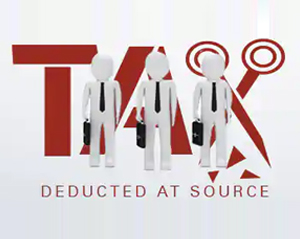It is important to consider tax saving plans when investing for your financial goals. Strategic financial planning with tax saving plans helps reduce your tax liabilities. With proper planning, you can save for your goals without being overburdened by tax.
Tax Saving Methods and Components
Below are some tax-saving plans in India:
Fixed Deposit (FD)
A Fixed Deposit (FD) is a secure investment that ensures guaranteed returns on maturity. FDs with a minimum term of five years qualify for a deduction of up to ₹ 1.5 lakh under Section 80C of The Income Tax Act, 1961. These deposits are suitable for low-risk investors with a medium-term investment horizon.
Public Provident Fund (PPF)
The Public Provident Fund (PPF) is a long-term investment that provides assured returns upon maturity. It is a low-risk option. This investment avenue also allows for a deduction of up to ₹ 1.5 lakh in a financial year under Section 80C of The Income Tax Act, 1961. The interest earned in the PPF account is exempt from income tax under Section 10 of The Income Tax Act, 1961. The PPF account matures upon completing fifteen financial years from the date of opening and is suitable for long-term financial planning.
Unit-Linked Insurance Plan (ULIP)
A Unit-Linked Insurance Plan (ULIP) offers the dual benefit of investment and life cover. It enables you to invest in various market-linked funds, like equity, debt and hybrid, that can help you achieve your financial goals. The premium paid under the policy qualifies for a deduction of up to ₹ 1.5 lakh under Section 80C of The Income Tax Act, 1961. Additionally, the returns are exempt, subject to specific conditions outlined in Section 10(10D) of The Income Tax Act, 1961.
National Savings Certificate (NSC)
The National Savings Certificate (NSC) is a fixed-income savings plan backed by the Government of India. This savings plan provides investors with a deduction of up to ₹ 1.5 lakh under Section 80C of The Income Tax Act, 1961. With an interest rate of 7.7% per annum as of 2023, the NSC comes with a lock-in period of five years.
Term insurance
Term insurance is a simple life insurance plan. It offers a life cover in case of any unfortunate event during the policy term. Term insurance also offers tax benefits. You can avail a tax benefit under Section 80C of The Income Tax Act, 1961, allowing a deduction of up to ₹ 1.5 lakh annually. Moreover, the proceeds from the insurance policy are exempt under Section 10(10D) of The Income Tax Act, 1961.
Pension plans
Pension plans offer financial security and help you plan for your retirement. Under Section 80CCC of The Income Tax Act, 1961, pension plans qualify for a deduction of up to ₹ 1.5 lakh annually. Additionally, deductions on pension schemes provided by the central government, such as the NPS, can be claimed under Section 80CCD(1) of The Income Tax Act, 1961.
Health insurance or Mediclaim
Health insurance provides coverage for pre-hospitalisation, hospitalisation, and pre-hospitalisation expenses. These plans offer tax benefits under Section 80D of The Income Tax Act, 1961. You can claim up to ₹ 25,000 for yourself, your spouse or dependent children. The amount is increased to ₹ 50,000 in case of senior citizens. Additionally, an extra ₹ 25,000 can be claimed for parents or ₹ 50,000 in the case of senior citizen parents. You can also claim up to ₹ 5,000 for preventive health measures for yourself, your family and an additional ₹ 5,000 for parents.
National Pension Scheme (NPS)
The National Pension Scheme (NPS), initiated by the Indian government in 2004 and regulated by the Pension Fund Regulatory and Development Authority (PFRDA), is a retirement scheme open for Indian citizens. The account can be used by individuals aged 18 to 65 years. NPS allows subscribers to tailor their investments in equity, fixed-income and government securities based on their risk preferences. Contributions to NPS offer a tax benefit under different sections of The Income Tax Act, 1961.
Tax-Efficient Investments for Senior Citizens and Retirees
Senior citizens and retirees need to employ tax-saving strategies and select prudent investment choices to secure their future needs. Below are some tax-saving plans that can offer you the necessary tax benefits in retirement:
Senior Citizens Savings Scheme (SCSS):
SCSS is an excellent option tailored for seniors. It offers a fixed interest rate and a tenure of five years. Investments in SCSS are eligible for a tax deduction of up to ₹ 1.5 lakh under Section 80C.Pension plans:
Opting for pension plans can provide you with a dual benefit of life protection and a regular income stream during retirement. Contributions to pension plans qualify for a deduction under Section 80CCC and allow you to save up to ₹ 1.5 lakh annually.Annuity plans:
Annuity plans can be a valuable choice for generating a steady income during retirement. While the income received from annuity plans is taxable, they can provide a fixed income over a specified period. Moreover, since these plans are a type of insurance, they offer a tax benefit with deductions of up to ₹ 1.5 lakh annually under Section 80C of The Income Tax Act, 1961.Unit-Linked Insurance Plans (ULIPs):
ULIPs offer the dual benefit of life cover and investments. They allow senior citizens to benefit from market-linked investments. The premiums paid under the policy are eligible for deductions of up to ₹ 1.5 lakh under Section 80C of The Income Tax Act, 1961.Health insurance:
As you get older, Health insurance becomes important to cover medical expenses due to health issues. The premium paid for health insurance is eligible for a deduction under Section 80D of The Income Tax Act, 1961. Senior citizens can claim up to ₹ 50,000 for the premium paid. An additional ₹ 50,000 can be claimed for premiums paid for senior citizen parents.
Tax Saving options beyond Section 80C
Below are some tax-saving options apart from Section 80C:
Section 80D:
Premiums paid for health insurance for self, spouse, dependent children and parents up to ₹ 1 lakh.Section 80CCD(1B):
Contribution to the National Pension Scheme (NPS) beyond the limit of Section 80C, up to ₹ 50,000.Section 80GG:
Rent paid by individuals who do not receive House Rent Allowance (HRA).Section 24(b):
Interest paid on a home loan, subject to specified limits.Section 10(14):
HRA received by salaried individuals to meet rental expenses.Section 80E:
Interest paid on loans taken for higher education.Section 80G:
Donations made to specified charitable institutions and funds.Section 80TTA:
Interest earned on savings account deposits up to a specified limit.Section 54:
Capital gains tax on the sale of a residential property if the returns are reinvested in another property.Section 80GGC:
Contributions made to political parties.
People like you also read ...







